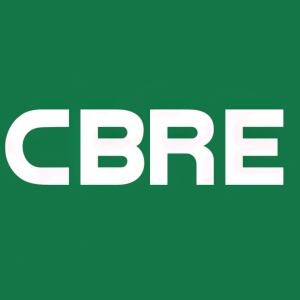A Check-In on the Hotel Sector’s ESG Initiatives
NORTHAMPTON, MA / ACCESSWIRE / February 2, 2023 / The COVID-19 pandemic accelerated the urgency for companies and individuals to act to protect the wellbeing of the planet, their communities, their employees, and in the case of hotels, their guests. As such, environmental, social and governance (ESG) initiatives have accelerated.
The hotel industry's commitment to ESG initiatives, while somewhat nascent, is increasing. Rising energy costs, which have increased electricity costs by
(E)nvironmental
According to the Sustainable Hospitality Alliance (SHA), to keep pace with the targets outlined in the Paris Agreement, the global hotel industry needs to reduce carbon emissions per room per year by
Companies like Accor, Hilton, Hyatt, IHG and Host Hotels have aligned themselves with science-based target initiatives (SBTi), which manage emissions reductions and net-zero commitments. Many hotel companies have made commitments to reduce their impact on the environment by setting climate-based targets. In many cases, they have adopted near-term targets on the path to achieving net zero. For example, Hilton pledged to reduce scope 1 and 2 emissions by
Investors are interested in understanding exposure to these climate risks. In the hotel industry, corporations have started to recognize the importance of reporting and disclosing standards and the need to set targets to mitigate climate risks early. Benchmarking has historically been difficult because of the lack of transparency. Ten years ago, IHG created its own system, called Green Engage, for measuring the environmental friendliness of its hotels. However, the industry has moved to standardized measurement systems such as Energy Star and LEED certification for U.S. buildings including hotels. As regulations, disclosure requirements and policies in the U.S. come into focus, companies that take steps to implement and invest in disclosure and goal setting will be ahead of the game.
(S)ocial
Developing a workforce, franchisee base and supplier network representing diverse populations and assuring equity and inclusion of all stakeholders has become a priority for many hotel companies. Social concerns also encompass issues related to guest and employee wellness and labor practices, as well as training programs that prevent human trafficking and human rights violations.
Companies create and support training programs to help at-risk youth and underserved populations by developing hospitality skills and a career path in the hospitality industry. In addition, companies look for ways to give back through monetary donations and volunteer hours.
Organizations like the National Association of Black Hotel Owners, Operators and Developers (NABHOOD), Asian American Hotel Owners Association (AAHOA), American Hotel and Lodging Association (AHLA)/Castell Project, National Society of Minorities in Hospitality (NSMH), She Has A Deal (SHAD), and Latino Hotel Association (LHA) advocate and support growth in women- and minority-owned, developed and operated hotels within the industry. According to AAHOA, Asian Americans represent more than 20,000 hoteliers owning
Operator hiring practices are focused on ensuring diversity among staff and upper management. While the industry has made some progress in increasing the representation of women and Black employees in executive roles, trends among C-suite executives have held steady. According to the American Hotel and Lodging Association (AHLA)/Castell Project,
While representation in high-level management has stayed roughly the same over the past several years, there has been an increase at the senior vice president, vice president and director levels, hopefully leading to a more diverse pool of potential candidates for higher-level positions in the future.
Many companies make supplier choices based on alignment with ESG priorities. For example, one of Hilton's inclusivity-related goals is to double the spending on sourcing from local, small and medium-sized businesses and minority-owned suppliers. Choice Hotels' supplier diversity program develops opportunities for diverse suppliers, educates associates and fosters an inclusionary procurement process among suppliers. Several hotel companies, including Choice, Hilton, Marriott and Wyndham, are members of the National Minority Supplier Development Council, whose mission is to serve as a growth engine for minority-owned business enterprises (MBE).
Operators are focused on making hotels a more integral part of the larger community with efforts to increase charitable giving and volunteering. Marriott, Hilton, Hyatt and Wyndham have set goals for employee volunteer hours and targets for annual corporate giving.
(G)overnance
Governance issues include board diversity, company ethics, transparent reporting on the environmental and social goals, and clear executive compensation guidelines.
Proxy advisory firms create policy guidelines each year to help institutional investors assess how to vote on various proxy items that might arise during the year. The most recent Glass Lewis policy updates for 2022 included voting provisions on board diversity and composition, oversight for ESG risks, Special Purpose Acquisition Companies (SPACs), Say on Climate, and Say on Pay proposals. The last two topics allow shareholders to comment on a company's climate and compensation strategies.
Best governance practices include having independent directors, separating the role of CEO and Chairman, staggering board terms, and eliminating poison pill provisions. Many public hotel companies and REITs follow some of these best practices already. Most hotel companies allow employees to anonymously report financial and ethical misconduct to promote ethical company culture. Hotel companies have also released statements regarding policies on human rights and condemning human trafficking.
Why is ESG important?
Increasingly, travelers are expressing an interest in patronizing eco-friendly and socially responsible companies. The need to reduce carbon emissions from transportation could necessitate changes in business and leisure travel, a risk that could arise for hotel owners.
According to Google Insights, more than
Guests can quickly assess the environmental friendliness of a hotel by using rating systems like Tripadvisor's GreenLeaders, Green Key Global, Green Seal, Green Tourism Active, Audubon Green Lodging Program, Travelife, or Earth Check, and LEED or Energy Star Certification provide information about the sustainability of a property. Since February 2021, the amount of searches on terms such as environmental hotel, green hotel and eco-hotel have remained above 2019.
The search for environmentally friendly accommodations is most common among luxury hotels guests who often seek vacations at resorts in environmentally sensitive areas like beaches and mountains. According to Virtuoso, a network of luxury travel agencies, in April 2021,
What is the hotel industry focusing on so far?
Hotel operators focus their environmental efforts on four key areas: water conservation, energy efficiency, carbon emissions and waste reduction. Unlike other real estate sectors, hotel buildings operate 24/7 so investment in technology to help manage the systems within the buildings provides savings over more hours of the day.
WATER
Water scarcity is a global problem. Many popular tourist destinations are in water-stressed areas. Hotels use eight times the amount of water the local community uses (SHA, 2017). As a result, how hotels manage water usage and consumption will substantially impact water-stressed communities. Water conservation efforts can include minimizing water use in bathrooms, laundry, landscaping and pools and installing water management systems. Offsite projects aimed at protecting and preserving local watersheds can also be created.
WASTE
Waste reduction efforts focus on cutting food waste and upcycling materials.
ENERGY
Most hotel companies are installing energy-efficient lighting and solar panels, sourcing clean electricity and purchasing energy-efficient appliances. Many are using predictive monitoring systems to optimize and manage energy use. New properties are often planned and built with energy efficiency in mind. With margins under pressure because of rising costs, investments in energy efficiency could pay off in the long run. In 2021, utility costs decreased to slightly more than
CARBON EMISSIONS
Meeting planners and corporate and government travelers may request environmental impact information before making travel plans. Measurement and tracking are becoming a necessity. Uniform System of Accounts for the Lodging Industry (USALI) and other organizations are preparing to adopt standards and guidelines to help operators track waste, energy and water to make it easier to report on the environmental impacts of operations.
What Guests Can Expect
Guests should expect hotels to focus on wellness and placemaking including meals that include sustainably and locally-sourced food. Farm-to-table and farm-to-spa concepts are on the rise.
Companies support employee and guest wellness with added fitness facilities like a Peleton room, additional outdoor space, improved air quality systems and healthier locally inspired food options. In addition, guests may start to see décor that reflects local artisans and relies on upcycled materials. Improved hygiene and safety standards reflect expectations from the pandemic and are likely to remain as the pandemic recedes. Eco-friendly bedding and optional room cleaning for more than one-night stays are available in most hotels. The pandemic led to reduced housekeeping, and labor shortages and cost concerns have pushed chains to offer housekeeping upon request. However, union campaigns to bring back daily housekeeping to preserve jobs could jeopardize these efforts.
Financing Transactions and Development
As interest in environmental sustainability increases, companies turn to green bonds or sustainability bonds to finance many environmental projects.
The global green bond market hit
According to the LEED certification website database, there are more than 1,000 hotels associated with the LEED certification process in the U.S., excluding confidentially listed properties. Nearly
Conclusion
The hotel industry is in the early stages of achieving meaningful changes to environmental practices. Guest preferences and government mandates that include financial penalties and/or incentives will greatly influence the speed at which companies move toward their stated targets.
As the U.S. works to create a federal environmental policy, state and local governments will continue to set the agenda. Green projects will be facilitated by lowering the costs related to the projects and increasing the incentives to build and develop green projects. While current geopolitical and economic factors may have taken center stage, ESG goals will likely remain prevalent as countries prepare for the UN's climate change conference, Conference of Parties (COP26), in November 2022.

View additional multimedia and more ESG storytelling from CBRE Group, Inc. on 3blmedia.com.
Contact Info:
Spokesperson: CBRE Group, Inc.
Website: https://www.3blmedia.com/profiles/cbre-group-inc
Email: info@3blmedia.com
SOURCE: CBRE Group, Inc.
View source version on accesswire.com:
https://www.accesswire.com/737876/A-Check-In-on-the-Hotel-Sectors-ESG-Initiatives







